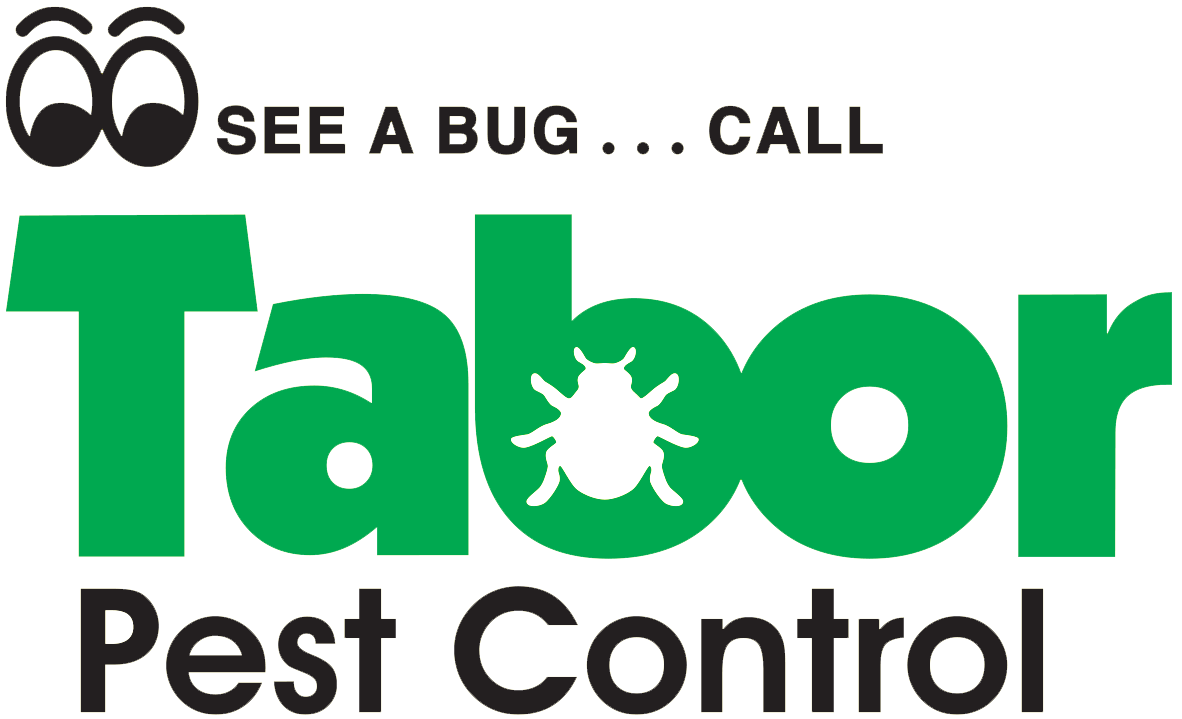How to Stop Ants from Invading Your Bathroom: Identification and Prevention Tips
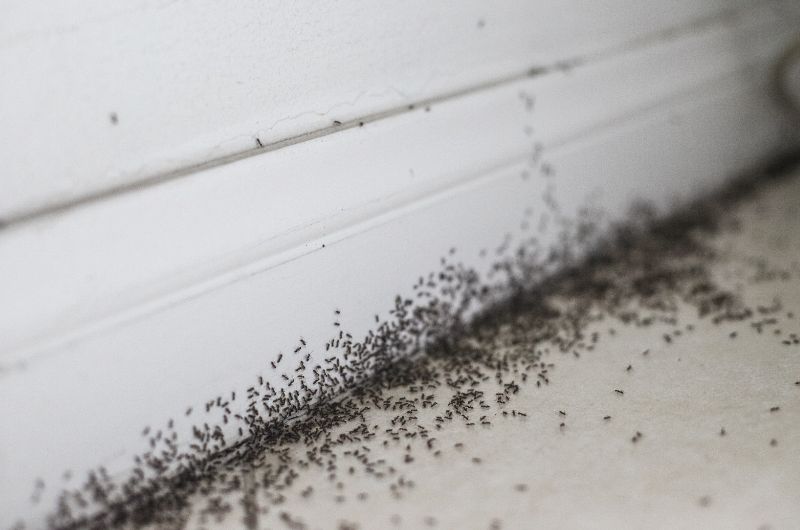
When it comes to unwelcome guests, ants might seem like the least of your worries. After all, they don’t seem to cause as much of a fuss as their pest cousins. But don’t let their small size fool you; these critters can be a real pain in the neck, especially when they turn up where they’re least expected, like in your bathroom.
You’d think they’d stick to the kitchen, right? After all, that’s where the food is! But surprise, surprise – ants aren’t just foodies. They’ve got a knack for finding the perfect living conditions, and your bathroom ticks all the right boxes.
So, if you’re scratching your head, wondering how ants ended up in your bathroom, hold on to your hat because the answer might just blow your mind.
Why are ants attracted to the bathroom?
The bathroom could be a perfect hiding spot for ants and the right place for them to build their colonies. It’s the ideal moist, dark, and damp place for them to live.
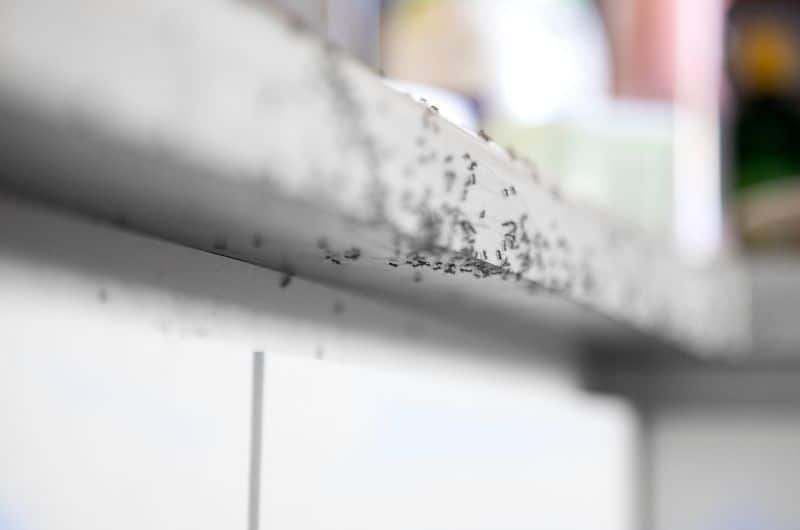
You could be thinking about how they would get their food in a space like this. Well, ants aren’t picky eaters at all, and unlike us, who would want to eat proper meals on our dining table, they could very much stay alive just on anything, including your hair, amongst other things.
Here are some of the other reasons why ants are in your bathroom:
- Perfume scents
- Soaps
- Body lotions
- Open toothpaste
- Rotten hair
Signs of ants in your bathroom
Before we get into how you can identify signs of ants in your bathroom, other than seeing them yourself, it’s essential to know that several parts of your bathroom would attract them.
These include:
- Damp and dirty floor mats
- Clogged drains
- Trash cans in the bathroom
- Chemical odors from pipes
- Dirt and grime in nooks and crannies
Ant debris
One of the common signs of ants living in your bathroom is the presence of ant debris. It’s what ants leave behind and can be described as piles of dirt or sand as they dig their nests.
You might also find their discarded wings, a positive sign of ants living nearby and growing their colony.
Small holes
If you’ve wooden cabinets or any wooden work done anywhere in your bathroom, look closely for small holes.
This is a sign that there’re ants nearby and a specific sign of carpenter ants which can cause significant damage to the wood.
Dampness
Another thing you should closely look for in your bathroom is a sign of dampness or any musty smell that signifies that your bathroom has water issues. Somewhere in your bathroom, water is leaking and creating issues.
This dampness creates a perfect environment for the ants to live and grow their colonies.
Seeing ants
Of course, the final nail in the coffin is that you would physically see ants in your bathroom. Now you might only see a couple of them, but that doesn’t mean there aren’t more in your bathroom.
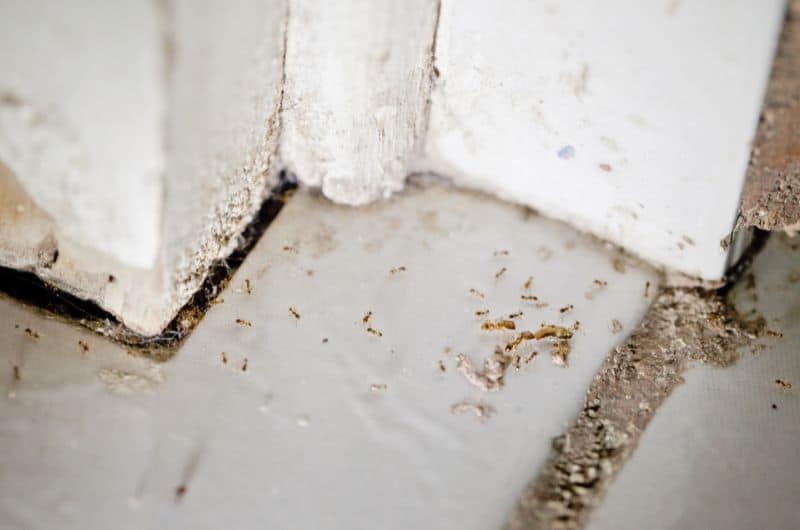
In fact, seeing a couple is a worse sign that there might be too many ants somewhere you don’t know, and they have grown in such numbers that they’re out and about roaming freely.
Since they can easily live inside a tiny hole, you might not be able to spot their colony on your own.
Popular ant species in South Alabama and South Georgia
Seven kinds of ant species are commonly found in South Alabama and Georgia. Although they usually nest outdoors in the top 6 feet of soil, they might also be widely found anywhere inside the home.
1. Argentine ants
These are the most commonly found ant species you’ll find. Due to unusually low levels of intraspecific aggression, the Argentine ant can establish large colonies.
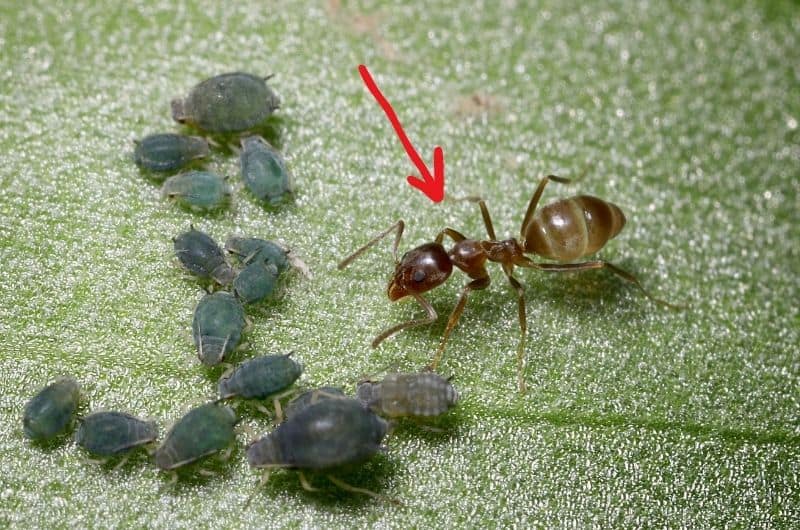
This is why they tend to spread quickly and can establish large colonies. Another fact about these ants is that they negatively affect the facilitation of plant-feeding pest insects and disrupt native ants, pollinators, and even vertebrates.
Argentine ants are dark brown in color and range between 2.2 to 2.8 mm long. They’re wingless with a 12-segmented antenna and emit a musty odor when crushed.
They aren’t directly dangerous to humans as they don’t bite or sting. But they are much more of a nuisance especially because of water availability. So, finding them in your bathroom could be quite a common sight.
They’re carriers of disease-causing bacteria for conditions like dysentery since they crawl over sewage, trash, and dead animals to get to their food source.
2. Southern Fire ants
Southern fire ants are commonly found nesting in open areas in soil or under stones. You can identify them by their often concolorous dark color and could be bi-colored with a redhead mesosoma and a black gaster.
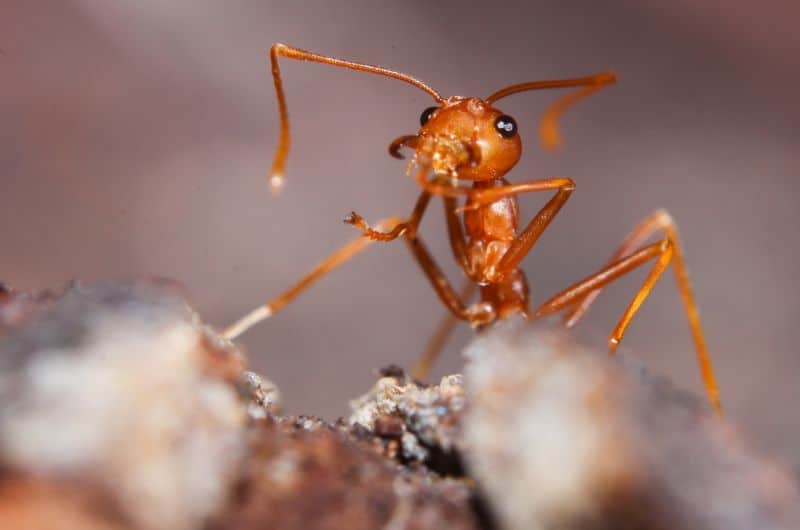
Their sting is quite painful and leaves a burning sensation which could easily turn into itchy welts, often in a circular pattern. The welts could also turn into blisters.
It could sting multiple times unless and until you remove or kill them.
3. Little Black ants
This species is common in wooded areas, and in yards, you can find them under rocks, rotting logs, and piles of bricks and lumber. Indoors they could be near woodwork, wall voids, decaying wood, masonry, and behind facades.
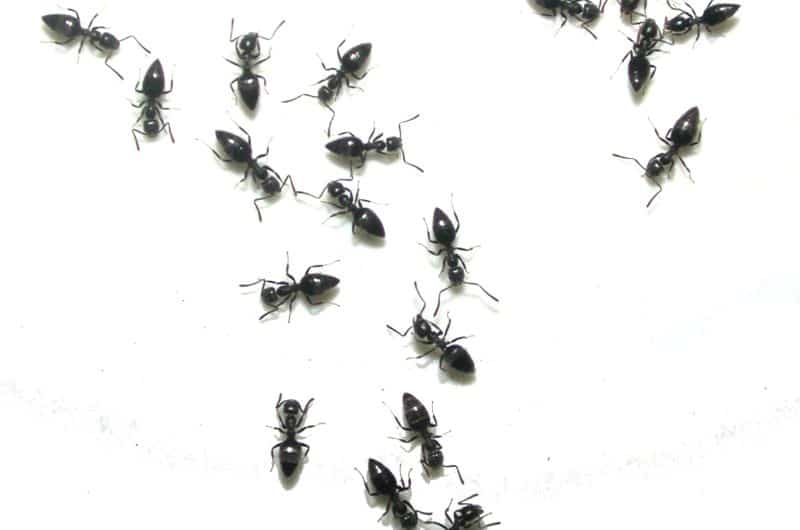
It’s easier to identify them as they’re black or dark brown in color and are easy to spot. You won’t have to worry about their sting as it’s too small and weak to be effective.
4. Carpenter ants
They’re quite famously known for building their nests by excavating wood and forming smooth tunnels inside the wood. Their size can vary, and black ones are quite common. Though they might be a combination of black and red or completely black, red, or brown.
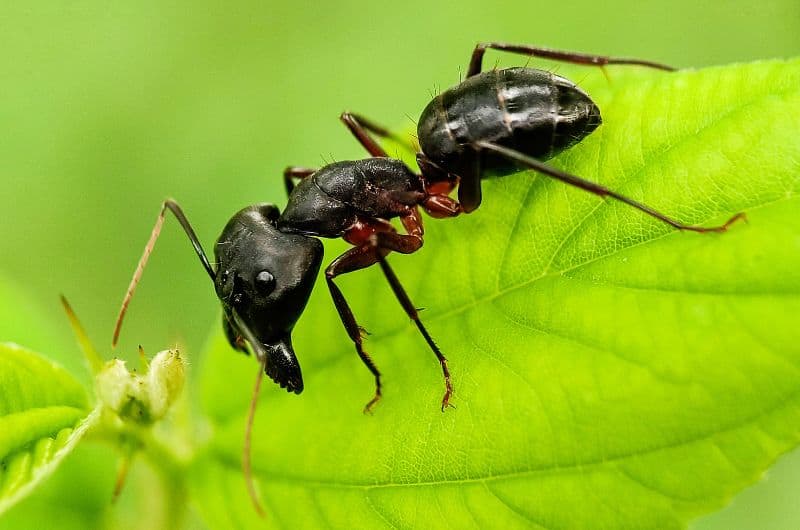
Their presence can be detected easily, as indicated by a rustling sound coming from wall voids or wood where the nest is located.
Thankfully their bites aren’t venomous, and neither do they transmit diseases.
5. Odorous House ants
Odorous house ants are given this name because they like to eat sweets and are fond of honeydew. They often nest near moisture sources, such as in wall voids near hot water pipers, in heaters, beneath leaky fixtures, and inside wood damaged by termites.
You don’t have to worry about them so much as they don’t pose a public health risk, but they can contaminate food and should be avoided.
6. Pavements ants
Pavement ants consume just about anything from insects, seeds, honeydew, bread, meats, nuts, and cheese. Inside the home, they can be found nesting in walls, insulation, and under floors.
These black ants don’t pose a public health risk but can contaminate your food.
7. Pharoah ant
You can recognize them by their usually pale, varying from yellowish to reddish, with the abdomen often darker to black in color.
They live in large colonies with workers numbering in the thousands and nest in warm and humid areas near food and water sources.
These species of ants are carriers of dozen disease pathogens, including salmonella and Streptococcus pyogenes.
Preventing ants in your bathroom
You need to create an inhospitable environment for ants so they don’t enter your bathroom anymore and are forced to leave your peaceful space alone.
A. Keeping your bathroom clean and dry
- Keep your bathroom as clean as possible. It would be best to clean it daily with a deep once a week, including scrubbing the tiles, the area surrounding the basin, shower curtains, etc.
- Mop regularly, including the hidden areas, such as behind the toilet.
- Unclog your drain regularly.
- Clean your bathroom mats often and replace them if they can’t seem to get clean anymore or smell even after cleaning.
B. Sealing cracks and openings
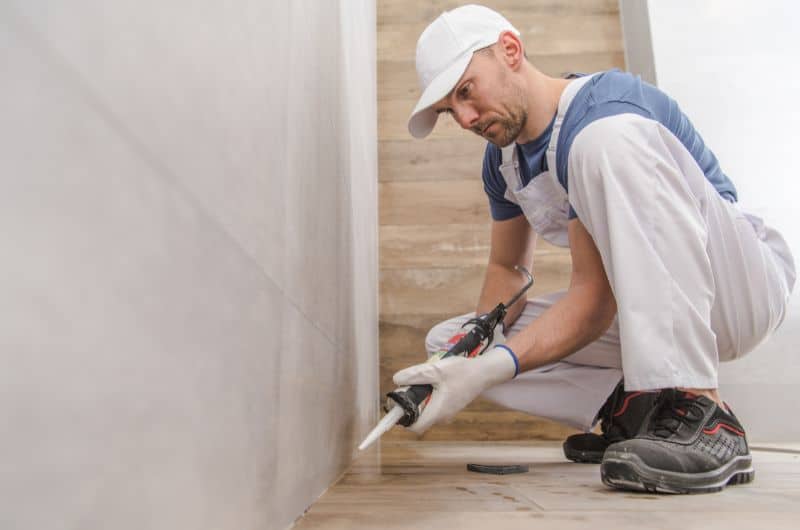
- Seal all the cracked window corners or anything small cracks you might see in the bathroom.
- If there’re any damaged or broken tiles, they should be replaced, or else they might give an opening to ants to create colonies.
- If wooden cabinets have become too old and have started to rot, they should be replaced; otherwise, they’ll keep attracting ants.
C. Leakages and humidity
- After a shower, ensure no steam build-up in the bathroom. Turn on a fan and open the door or windows to let the steam out.
- After a bath, ensure the bathroom doesn’t stay wet; if there’s water somewhere, it should be immediately cleaned up.
- Keep all the products that you keep in the bathroom closed up tightly.
- Get a plumber to check all the plumbing in the bathroom once a month so there’re no secret leakages.
By following these helpful tips, you can prevent ants from invading your bathroom in the future, and it’ll remain clean and sanitary.
Why are there ants in my bedroom?
Your bedroom and bed are a space where you lie down to relax and sleep; this is the last space where you would expect to struggle or face any problem. Finding ants anywhere in your bed or bedroom can come as a huge surprise and not of a good kind!
Ants are such tiny creatures that they can go about anywhere and travel to any place in your home. While finding one or two in your bedroom isn’t that big of a deal as you can quickly get rid of them. But finding a lot of ants can be problematic.
A messy kitchen always attracts ants. As they’re constantly trying to find a place with suitable living conditions, a bedroom isn’t a faraway space for them to be.
While moisture, dampness, food, and water are all ants need to thrive as a colony, you must wonder if you’ve accidentally made your bedroom perfect for ants.
Finding ants in the bedroom shouldn’t be surprising if you occasionally or constantly eat food there. Even if you think you’re being careful, little food crumbs will always be on your bed or bedroom floor. A carpeted floor has more of a chance of having food crumbs in it.
Think from the point of view of an ant. They can easily survive on small crumbs of food, and if you’re eating in your bedroom, leaving dirty plates, or dropping food, it’s a paradise for them. That’s how you’ll find a trail of ants in your bedroom or, worse, on your bed.
You’ve to stop eating or bringing food into your sleeping space. This is the only way to prevent ants from entering your bedroom. Eat your meals in the kitchen or dining room!
Getting rid of ants in your bathroom
Even though ants aren’t as dangerous of a pest, it’s still annoying to see them. You don’t want to take a shower and see ants on your bathroom floor or crawling on the walls.
To get rid of them, some home remedies you can use in your bathroom includes:
White vinegar
Using white vinegar successfully eliminates ants as it interferes with their pheromones. Since this is how they find a way around things, eliminating them is easier.
Just wipe wherever you feel the ants might be getting inside, such as your sink, mirrors, cabinets, walls, etc.
But it doesn’t work on natural stones like quartz, marble, and granite.
Boric acid
Boric acid is mildly hazardous to children and animals, so be careful when applying it in your bathroom. Sprinkling it over surfaces where ants might be emerging can help. Create a line over corners.
Borax
This chemical is hazardous to ants and causes damage to their outer skeletons and digestive systems. While you can find it in regular household products like toothpaste, mouthwash, and lotion. But to ants, this can be dangerous. You can mix it with peanut butter or jelly and leave it along the ant’s trails to attract them to it.
Other household items that can help you eliminate an ant situation in your bathroom include:
- Citrus peels are toxic to ants
- Cayenne pepper, cinnamon, garlic cloves
- Coffee powder
- Essential oils
Ant traps and baits
While natural remedies can help you so much, you can also use commercial ant traps and baits to eliminate ants. These traps and baits attract ants and then poison them.
They’re not difficult to use and place them in areas where you think ants live. Or somewhere where you see them most of the time in your bathroom.
Just follow the instructions correctly, and these might be able to get rid of ants.
When to call the professionals
Only so many natural remedies and ant traps can help eliminate ants in your bathroom. It’s okay to use them if you see a few ants. Using such remedies can eliminate them.
But you could have a whole ant colony living in your bathroom, and you wouldn’t know what to do about it on your own. An entire ant colony is challenging to deal with and requires professional assistance.
Our professionals at Tabor Pest Control have the right tools and more potent chemicals to deal with an ant infestation in your bathroom.
It’s better not to take a chance when it comes to ant infestation as it could spread to other parts of your home through drains and ventilation and might end up causing you various health issues by contamination.
At Tabor Pest Control, we can assure you that our services will help you eliminate ant colonies and get your bathroom back to the relaxing space you want it to be!
Contact us today
FAQs
How do I get rid of ants in the bathroom drain?
Ants love moisture, and damp places and drains are the perfect places to crawl in and out of. Finding ants around your drain shouldn’t be a surprise since this is also where they’ll find their food.
You can do so by mixing equal parts baking soda and white vinegar and pouring it down the drain.
To eliminate the ants, you’ll see foam forming, producing carbon dioxide, and clearing any clogging in your drains.
Pour some hot water once you stop seeing foam, which will flush out anything down there. Then, if you’re still facing issues, don’t hesitate to call professionals at Tabor Pest Control to terminate an ant infestation at your home.
How can I get rid of flying ants in the bathroom?
Flying ants can be a nuisance, and although they aren’t flying cockroaches, you still need to get rid of them as they buzz around like mosquitoes.
It’s best to use essential oils like peppermint oil and create a mixture to spray on the flying ants to get rid of them.
For example, mix 2/3 of water and 1/3 of liquid dish soap thoroughly in a spray bottle, and then add a few drops of peppermint oil.
Why are there ants in my bathroom but nowhere else?
If you see ants only in the bathroom, that could indicate it’s a perfect place or environment for them to live in. You could have a leaky pipe somewhere, causing ideal dampness or humidity in your bathroom, which attracts ants.
It’s essential to have a dry bathroom at all times when you’re not using it and to have proper ventilation to prevent any humid conditions. Also, check your windows properly because even if there’s a small crack, it could easily lead ants through there.
